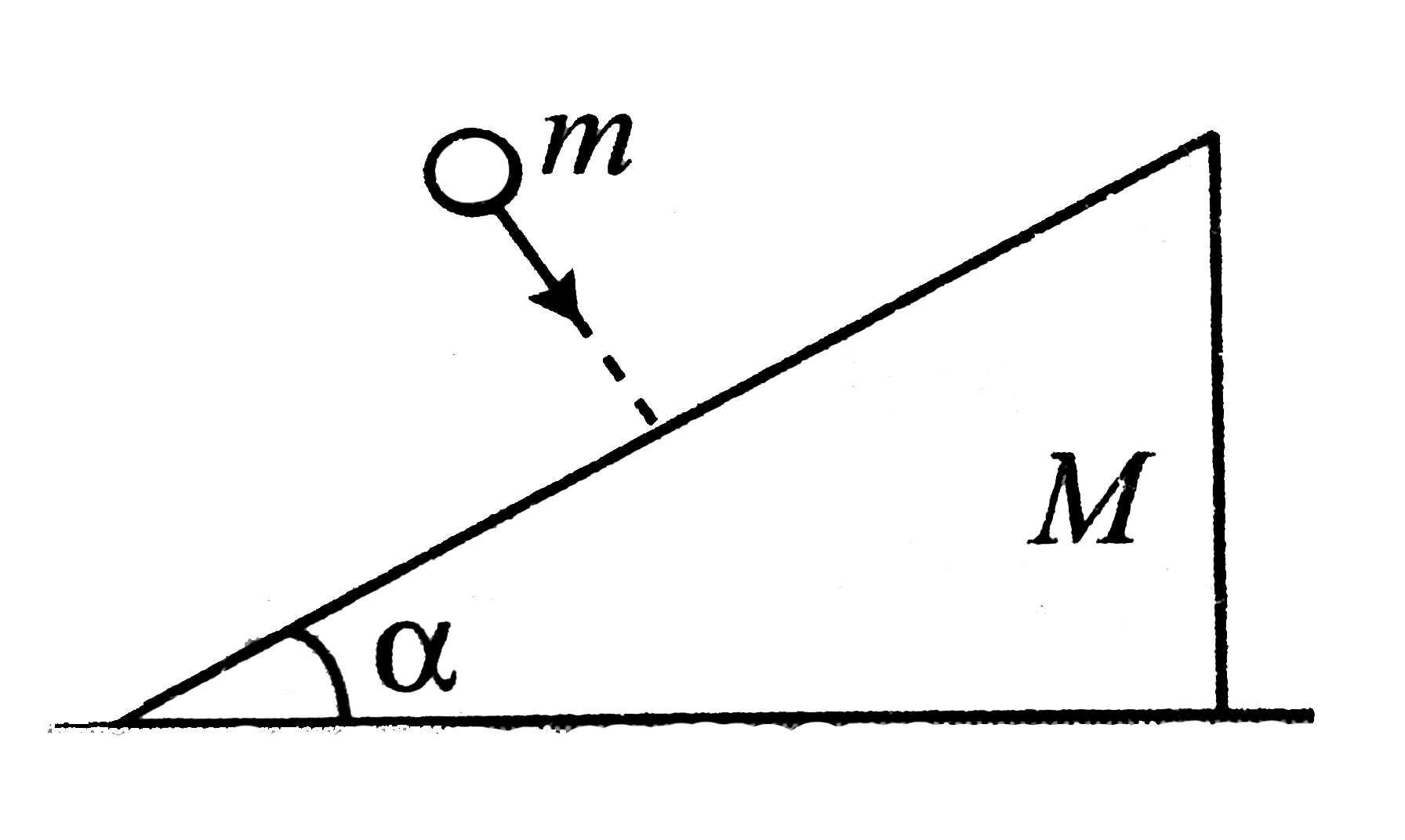A particle of mass m, collides with another stationary particle of mass M. If the particle m stops just after collision, then the coefficient of restitution for collision is equal to
mM
M−mM+m
1
mM+m
The correct Answer is:A
The particle of mass m moving with a velocity u , collides with a particle of mass M at rest . M stops after collision
∵ Momentum before collision
= Momentum after collision
∴mu+M×0=m×0+Mv
∴V=muM ...(i)
The coefficient of restitution
e=−(v2−v1u2−u1)
Where v2=v,u2=u1andv1=0
∴e=−(v−00−u)=vu=muMu=mM
∴e=mM
Topper's Solved these Questions
Similar Questions
A smooth wedge of mass M is kept at rest on a smooth horizontal surface . Inclined face of the wedge make an angle θ with the horizontal . A particle of mass m collides normal to inclined face of wedge . If speed of the particle just before collision is u and coefficient of restitution is e then find velocity of wedge after collision .
View SolutionA particle of mass m collides with a stationary particle of mass M and deviates by an angle of 60°. After collision mass M recoils at an angle 30° to the original direction of motion of m. If there is no loss in kinetic energy in the collision, the ratio of mM is _________.
View Solution
Knowledge Check
- Question 1 - Select One or More
A particle of mass m collides with another stationary particle of mass M such that the second particle starts moving and the first particle stops just after the collision. Then which of the following conditions must always be valid ?
AmM≤1BmM=1Ce=1De≤1 - Question 2 - Select One
A particle of mass m1 collides head on with a stationary particles of mass m2. If m1m2 gte, where e is the coefficient of restitution, then :
Am1 will retrun backBm1 will move in same directionCm1 will stopDunpredictable - Question 3 - Select One or More
A particle (A) of mass m1 elastically collides with another stationary particle (B) of mass m2. Then :
Am1m2=12 and the particles fly a part in the opposite direction with equal velocities.Bm1m2=13 and the particles fly apart in the opposite direction with equal velocities.Cm1m2=21 and the collision angle between the particles is 60∘ symmetrically.Dm1m2=21 and the particles fly apart symmetrically at an angle 90∘
An object of mass m moving with speed u collides one dimentionally with another identical object at rest. Find their velocities after collision, if coefficient of restitution of collision is e.
View SolutionA ball of mass m collides with a stationary wedge of mass M, perpendicular to its inclined face, inclined at an angle as shown in the figure. If the coefficient of restitution between the wedge and ball is e, calculate the ratio of modulus of velocity of the ball immediately after and before collision. Also calculate the velocity of wedge just after collision.
 View Solution
View SolutionA block of mass m moving at speed υ collides wilth another block of mass 2 m at rest. The lighter block comes to rest after the collision. Find the coefficient of restitution.
View SolutionA moving block having mass m , collides with another stationary block having mass 4m. The lighter block comes to rest after collision. When the initial velocity of the block is v, then the value of coefficient of restitution (e) will be
View SolutionStatement I. A particle strikes head-on with another stationary particle such that the first particle comes to rest after collision. The collision should necessarily be elastic.
Statement II: In elastic collision, there is no loss of momentum of the system of the particles.View Solution

